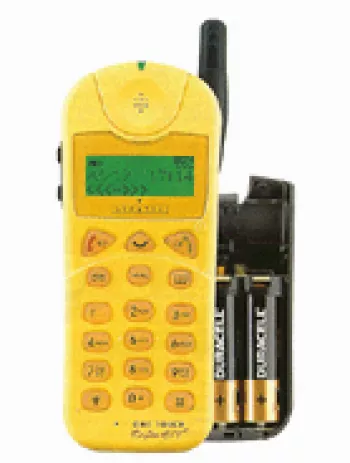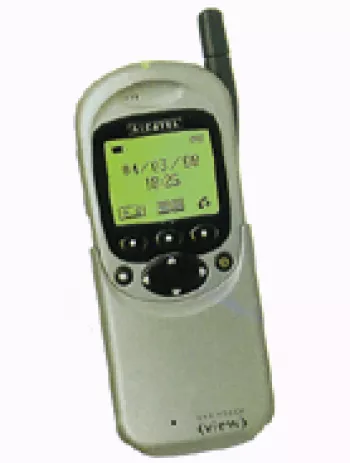
Overview of Alcatel OT Easy
The Alcatel OT Easy marked a significant step in mobile phone evolution, catering to basic communication needs with its simplicity and durability. Released in 1998, it became a favored choice for users looking for straightforward functionality without the complexities of modern-day smartphones.
Design and Build
The body of the Alcatel OT Easy is built with dimensions of 133 x 54 x 25 mm, making it compact enough to carry around easily. Weighing 160 grams, it provided a solid, comfortable grip in the hand. The device used a Mini-SIM card, a standard in that era, facilitating decent connectivity on available network bands.
Display
The Alcatel OT Easy featured an alphanumeric screen capable of displaying 2 x 12 characters, sufficient for reading text messages and checking call logs. While the display was basic compared to the high-resolution screens of today, it was perfectly suitable for its time, primarily serving text-based communication.
Network and Connectivity
Focusing on essential communication, the phone operated solely on GSM technology with 2G bands. It connected via GSM 900, a common network band during its time, providing adequate coverage for making calls and sending SMS messages. The device did not support GPRS or EDGE, highlighting its focus on basic functionality.
Battery Life
A significant feature of the Alcatel OT Easy was its noteworthy battery life. Equipped with a removable NiMH 580 mAh battery, it could last up to 70 hours on standby and provided up to 3 hours of talk time. An extended 1200 mAh NiMH battery option was also available, nearly doubling its capacity with a standby time of 140 hours and talk time of 6 hours.
Sound Options
The device wasn't equipped with a loudspeaker or a 3.5mm headphone jack, redefining it as a pure communication tool. However, it did offer monophonic ringtones, a standard at the time, allowing users to select simple alert tones for incoming calls and messages.
Memory and Storage
Storage on the Alcatel OT Easy was minimal, with no card slot available for expansion. Contacts were stored directly on the SIM card, which limited the number of contacts a user could save. The phone could maintain records for the last 5 dialed, received, and missed calls, which sufficed for basic call management.
Messaging and Features
The phone supported SMS messaging, one of its key features, enabling simple text communication. Other features included a basic clock and alarm function, making it handy for essential time management needs. However, it did not support games or Java applications, focusing almost exclusively on calling and messaging.
Limitations and Considerations
The Alcatel OT Easy lacked several features we take for granted today, such as a camera, Bluetooth, Wi-Fi, GPS, browser capabilities, and a 3.5mm audio jack. These omissions underscored its nature as a device intended for rudimentary communication, appealing to users who needed reliability over technological advancement.
Legacy and Impact
Despite its limited features by modern standards, the Alcatel OT Easy played a crucial role in the mobile communications landscape of its time. It provided millions with their first experience of mobile telephony, exemplifying robustness and user-friendliness. Its success helped pave the way for innovations that followed, shifting towards more advanced mobile technologies.
Conclusion
The Alcatel OT Easy remains an interesting artifact from the late 1990s mobile phone market, demonstrating the industry's evolution from basic communication devices to today's multifaceted smartphones. Its focus on simplicity and fundamental functionality still resonates with those who appreciate the importance of staying connected without unnecessary complexities.
Key Features of Alcatel OT Easy
- Launched in 1998 and is a classic, discontinued model.
- Compact size with dimensions of 133 x 54 x 25 mm and weight of 160 grams.
- Supports GSM 900 network technology.
- Equipped with a monochromatic alphanumeric display capable of showing 2 x 12 characters.
- Simple phonebook functionality with storage limited to SIM only.
- Call records store up to 5 dialed, received, and missed calls each.
- Supports SMS for basic messaging needs.
- Includes useful features like Clock and Alarm.
- Available in a variety of colors.
- Powered by a removable NiMH battery with an extended option:
- Standard battery: 580 mAh, up to 70 hours standby and 3 hours talk time.
- Extended battery: 1200 mAh, up to 140 hours standby and 6 hours talk time.
Alcatel OT Easy Key Disadvantages
- Lack of GPRS and EDGE support for internet connectivity.
- No support for modern networks; limited to GSM 900.
- Discontinued status means no official support or updates.
- Bulky design with dimensions of 133 x 54 x 25 mm and weight of 160 g.
- Limited display with only 2 x 12 characters capacity.
- No memory card slot or internal memory, with phonebook stored only on SIM.
- Minimal call records storage with only 5 entries each for dialed, received, and missed calls.
- No camera features available.
- No loudspeaker or standard 3.5mm audio jack for headphone connectivity.
- Lack of connectivity options such as WLAN, Bluetooth, GPS, and Radio.
- Basic features only, with no games or java support.
- Limited messaging capabilities restricted to SMS only.
- Basic battery life with a removable NiMH 580 mAh battery offering limited standby and talk time.
View Also
More Phones
All Rights Reserved +14268 Phones © Mobilawy 2025

























